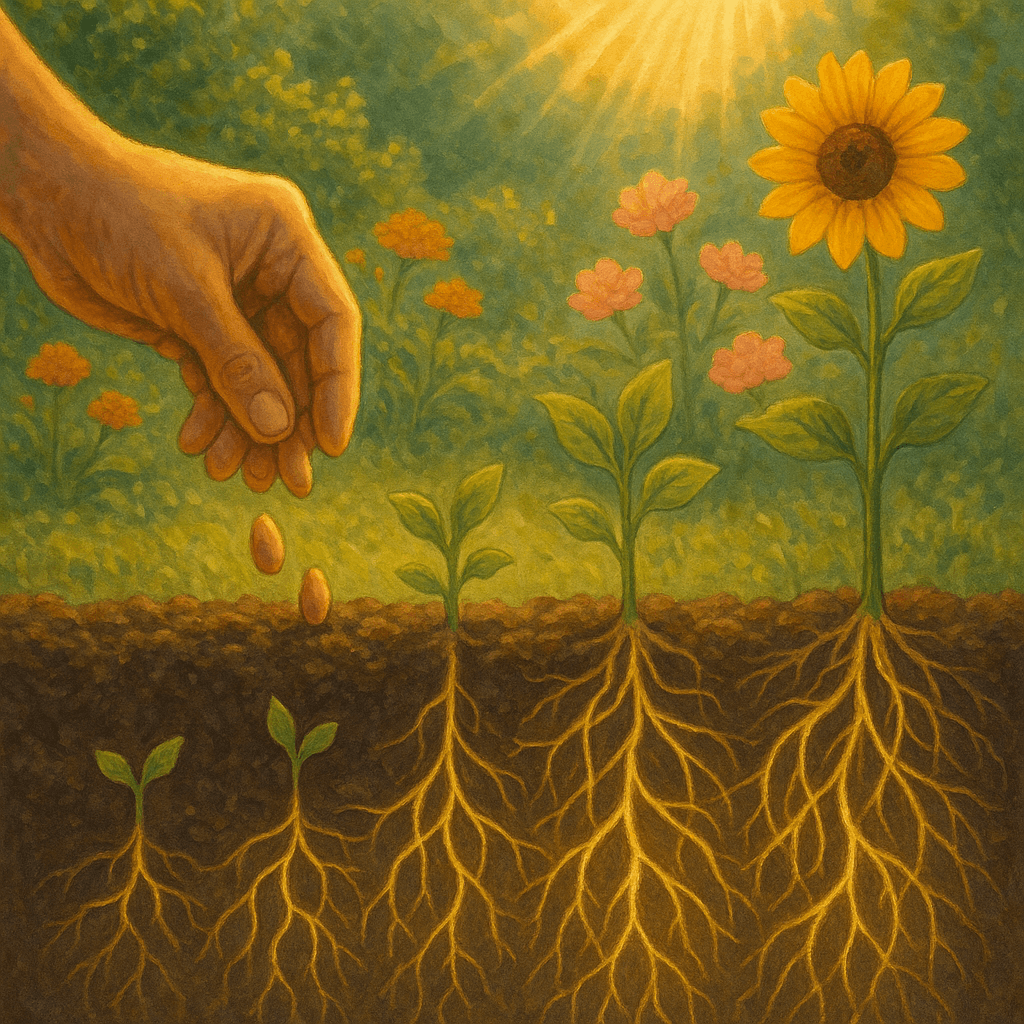From Contemplation to Action: Seeds of Inner Reflection

What we plant in the soil of contemplation, we shall reap in the harvest of action. — Meister Eckhart
—What lingers after this line?
One-minute reflection
Why might this line matter today, not tomorrow?
The Soil of Contemplation
Meister Eckhart’s vivid metaphor begins with the act of planting in the ‘soil’ of contemplation. This image invites us to view our inner life as fertile ground, ready for intentional thought and deep reflection. Much like a gardener preparing earth for seeds, when we pause to ponder our values, ideas, and desires, we lay a foundation for future growth. Ancient philosophies, such as those expounded by Marcus Aurelius in his Meditations (c. 180 AD), echo the notion that the quality of our actions originates in this quiet, preparatory phase.
Cultivating Inner Seeds
Once the soil is prepared, the act of planting represents the mindful input we bring to our inner world. Whether through meditation, prayer, or critical thinking, what we ‘plant’ shapes what will eventually emerge. For example, Buddhist teachings emphasize that intentional thought sets the stage for ethical living—the seeds sown in meditation are mirrored in daily conduct. This step underscores the transformative potential of our private moments of stillness.
Growth Beneath the Surface
Transitioning from planting to growth, we recognize that change often occurs unnoticed. Contemplation is a dynamic process; ideas and insights germinate out of sight, gradually developing into convictions and intentions. Just as a seed’s early growth remains hidden underground, our reflective periods foster patience and faith in unseen progress. The writings of Thomas Merton, a 20th-century Trappist monk, stress that rich inner soil nurtures possibilities that only later reveal themselves in our choices.
Reaping the Harvest: Action
As contemplation matures, it naturally ripens into action—the ‘harvest’ Eckhart describes. This harvest is not accidental but the result of intentional cultivation. Throughout history, great leaders and thinkers have emerged from sustained reflection, their accomplishments serving as fruits of their contemplative labor. For instance, Mahatma Gandhi’s campaigns for social change originated in years of introspection and ethical discernment, demonstrating that action grounded in contemplation can bear transformative outcomes.
Renewing the Cycle
Lastly, the metaphor points toward a cyclical relationship: each harvest provides the seeds for future planting. After actions are taken, reflection allows us to learn, adjust, and begin anew. In modern psychology, practices such as mindful journaling and regular debriefs reinforce this ongoing interplay. By continually sowing contemplation and reaping action, we nurture a life characterized by purpose and thoughtful engagement with the world.